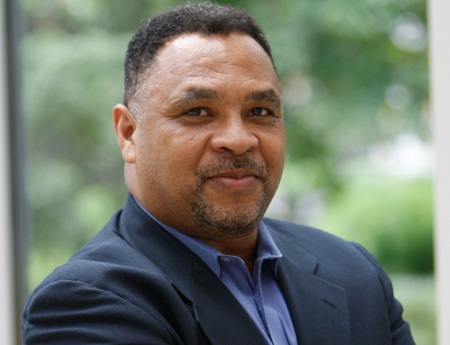Hockey-Stick Growth Is Goal for Burst Boss

The smarter way to stay on top of broadcasting and cable industry. Sign up below
You are now subscribed
Your newsletter sign-up was successful
When Bryant McBride and his team set out to create Burst, the goal of the mobile video and photo sharing company was not necessarily to be an avenue for media companies to deliver user-generated content on live TV. Rather, the origin of the company came in part from McBride’s mother.
She lives in Minnesota, and didn’t want her son to send her T-shirts and merchandise from sports leagues he worked with. She just wanted videos of her grandkids in Boston playing sports.
“That stayed with me for so long,” says McBride, 50, the CEO of Burst. “Then when the opportunity came to build a product down below that can serve the needs of families...that was appealing to me.”
Burst would go on to shift its focus to become a key crowdsourcing video tool for broadcasters while still keeping that familial spirit, just as McBride went from a college athlete and budding politician to a leader in entrepreneurship.
The company’s growing roster of customers includes The Weather Channel, CNBC, VH1 and the New England Sports Network
“I’ve always admired people who can rise from nothing, work hard and be a nice person at the same time and do whatever it takes work-wise to make their project successful, and Bryant’s certainly done all of that,” says Tom DiBenedetto, a minority owner of the Boston Red Sox and former president of A.S. Roma who currently serves as chair of the Burst board. “He refuses to lose. He’s one of the most competitive people you’ll ever meet.”
Dreams on Ice
The smarter way to stay on top of broadcasting and cable industry. Sign up below
McBride was born in Chicago but at the age of 5 moved to Sault Ste. Marie in Ontario, Canada, where they “don’t let you leave unless you play hockey.” He was recruited by West Point as the rare U.S.-born, Canadian-trained hockey player. What he didn’t realize at 18 was that he had the gene for entrepreneurship, and restrictions at the military made it hard for him to do his own thing, much less create it.
Before transferring to Trinity College, McBride served as the first African-American class president at West Point. He says his experience there was an “unbelievable anchor” to his career, recognizing that if he could survive being a plebe, his opportunities were limitless.
At Trinity, where he was again the first African-American class president, McBride played hockey, earning All-American honors as a defenseman and winning the national championship in each of his three years. With an interest in government and a major in political science, he earned a masters in public admininstration from Harvard, but soon felt frustrated by politics’ slow pace. He turned toward entrepreneurship, where he could “take something from nothing and build it.”
In 1992, he got a job with the NHL and was “set loose” on the league’s business side. As VP of business development, McBride helped grow the game in traditional ways, such as expanding broadcast rights, and non-traditional ways— providing the game to communities that didn’t previously have entry, to kids of color who couldn’t afford or access equipment or a rink or a team. “I took it as a challenge to break down some of those barriers,” McBride says.
He treasured his time at the NHL, he says, but “that’s when the entrepreneurial bug really bit.”
At the Forefront of Mobile Video Sharing
McBride founded and invested in several businesses through his Route 2 Digital holding company with partners Tracy Deforge and Paul Levy.
In 2011, the trio—seeing “all of that chaos in below-the-line sports,” meaning high school and down, and the money moving to mobile and video—built a tool that could connect families by giving them an efficient way to privately share media from their phone. Burst was born.
But, McBride says, “the plan you start with is rarely the plan you end with.” Burst eventually pivoted its focus to media companies.
“There’s a camera in everyone’s pocket— that’s either an existential threat or an existential opportunity,” McBride says. “We want to be at the forefront of that.”
Take NESN, for instance. McBride and company noticed fans at live sporting events taking photos and videos, and sending them to social networks or the ether. The regional sports network wanted to use that content, and figured Burst could help.
“We basically are giving them a toolset to be able to own assets,” McBride says. “They don’t want to cede ownership of all that video of the game around the game.”
On telecasts, NESN tells fans how to get their videos on TV. They shoot a clip—at home, at the stadium, anywhere—and click on NESN’s prompted URL, which gives it the rights. Burst instantly uploads and curates that media and delivers the best ones back to NESN to showcase on TV, the Jumbotron or online.
“You build products for yourself that solve problems for you and your family,” McBride says. “I just wanted my mom to be able to within seconds see what my kids were doing.”
Her son is doing quite a bit, too.
